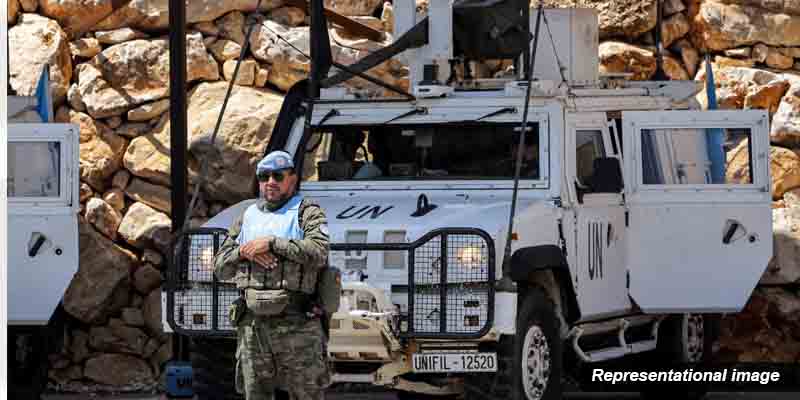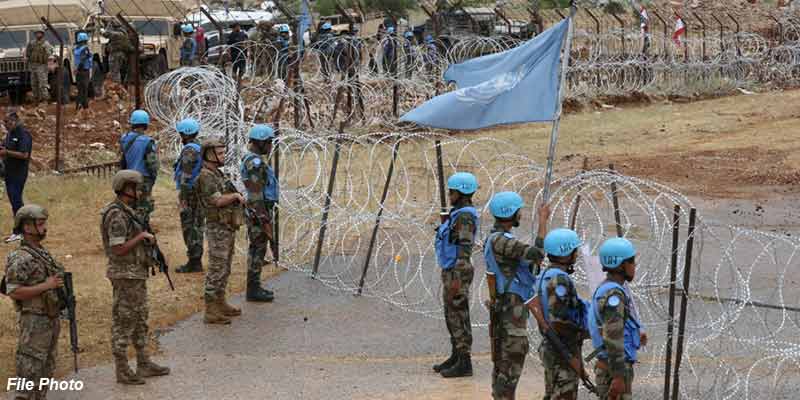- World
- Oct 14
- Kevin Savio Antony
What is the role of UNIFIL?
The UNIFIL peacekeeping force said two Israeli Merkava tanks destroyed the main gate of its base in southern Lebanon. After the tanks left, shells exploded 100 metres away, releasing smoke which blew across the base and sickened UN personnel.
What is UNIFIL?
• The UNIFIL was created by the United Nations Security Council in March 1978 to confirm Israeli withdrawal from Lebanon and restore international peace in the area. That 121-km stretch is often called the ‘Blue Line’.
• However, following the 2006 conflict, UNIFIL decided to include among its mandates to “support the Lebanese armed forces as they deploy throughout the south of Lebanon” and “monitor the cessation of hostilities”.
• As of April 2024, UNIFIL is 10,541-strong with 9,532 troops and 207 staff officers serving in the country in the Middle East.
• After Indonesia (1,234)), India (895) and Ghana (875) contribute the most number of personnel to the UNIFIL.
• Over the years, 334 members of the UNIFIL have made the ultimate sacrifice while in the line of duty.
• UNIFIL is funded through a separate account approved on an annual basis by the General Assembly.
What is the role of UN peacekeepers in conflict zones?
• Peacekeeping has proven to be one of the most effective tools available to the UN to assist host countries navigate the difficult path from conflict to peace.
• Peacekeeping has unique strengths, including legitimacy, burden sharing, and an ability to deploy and sustain troops and police from around the globe, integrating them with civilian peacekeepers to advance multidimensional mandates.
• UN peacekeepers provide security and the political and peacebuilding support to help countries make the difficult, early transition from conflict to peace.
UN Peacekeeping is guided by three basic principles:
i) Consent of the parties
ii) Impartiality
iii) Non-use of force except in self-defence and defence of the mandate.
• Peacekeeping is flexible and over the past two decades has been deployed in many configurations. There are currently 11 UN peacekeeping operations deployed on three continents.
• Today’s multidimensional peacekeeping operations are called upon not only to maintain peace and security, but also to facilitate the political process, protect civilians, assist in the disarmament, demobilisation and reintegration of former combatants; support the organisation of elections, protect and promote human rights and assist in restoring the rule of law.
India’s contribution to United Nations peacekeeping missions
• India has a long-standing and notable history of supporting UN Peacekeeping Operations, with a legacy of significant contributions in terms of troops, infrastructure, and gender inclusion.
• India is among the largest troop-contributing nations, having sent approximately 2,75,000 personnel to various UN peacekeeping missions worldwide. Indian troops have been instrumental in promoting peace and security in conflict zones, making critical contributions to global peacekeeping efforts.
• Indian soldiers, engineers, and medical personnel have been deployed to some of the most challenging missions, offering support in conflict areas such as the Democratic Republic of Congo (DRC), South Sudan, Lebanon, and more.
• Casualties: India has paid a high price in its peacekeeping efforts, with 179 Indian soldiers losing their lives in the line of duty. Their sacrifices underscore the risks faced by peacekeepers in volatile regions.
• India’s commitment to peacekeeping is further demonstrated by the establishment of Centre for UN Peacekeeping (CUNPK) in New Delhi, which specialises in providing training for peacekeeping operations.
• Training Capacity: CUNPK trains over 12,000 troops annually, including both national and international peacekeepers.
• Focus on Best Practices: The center plays a critical role in developing and sharing best practices and preparing soldiers for the challenges they may face in peacekeeping missions.
Women in Peacekeeping:
• India has been proactive in promoting gender equality in peacekeeping by deploying Female Engagement Teams and Women Military Police in UN missions.
• Indian female peacekeepers have been deployed in missions such as the United Nations Organisation Stabilization Mission in the Democratic Republic of Congo (MONUSCO) and the United Nations Interim Security Force for Abyei (UNISFA).
• India’s women contingents are among the largest in UN peacekeeping, second only to Liberia, and their presence has been vital in engaging local communities, particularly women and children, in conflict zones.
Key Takeaways:
• Global Influence: India’s commitment to UN peacekeeping not only highlights its dedication to global peace but also cements its position as a key player in maintaining international security.
• Gender Inclusion: India’s efforts to include women in peacekeeping is a significant step towards making peacekeeping more inclusive and responsive to the needs of all communities.
India’s contributions, both in terms of personnel and initiatives like the CUNPK, make it an essential part of the UN’s peacekeeping framework.
Additional Read:
The Blue Line in southern Lebanon
In preparation of the withdrawal of the Israel Defence Forces (IDF) from Lebanon, the UN identified the ‘Line of Withdrawal’, or so-called ‘Blue Line’, largely conforming to the internationally recognised boundaries of Lebanon. The United Nations established this Line in June 2000 for the sole purpose of confirming the full withdrawal of the IDF from Lebanese territory.
(The author is a trainer for Civil Services aspirants.)


